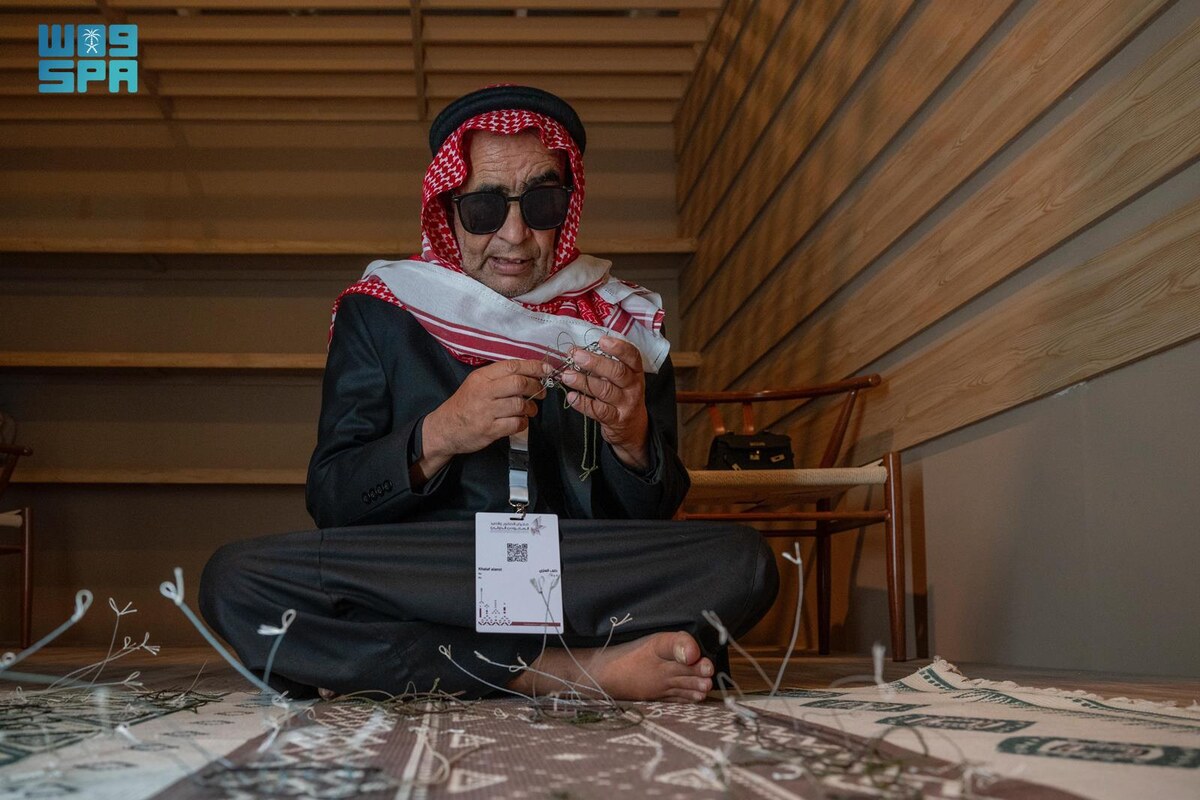RIYADH: Falconers rely on a variety of traditional hunting techniques, with Al-Manashbia being among the most notable, requiring extensive experience and precision.
The method involves an iron wire net set up in the shade of large trees. After a falcon eats its prey, it seeks shade, where it then falls into the trap.
Khamis Al-Saqri, a falconry enthusiast, said that constructing Al-Manashbia takes one to two days, depending on the hunter’s experience. It is considered a difficult and complex method due to the need for a professional and innovative arrangement of the net holes.
While Al-Manashbia is well-known, other techniques exist as well, including Khadj Al-Tayr, where falcons are followed and captured with a large net after sunset.
Falconry involves training rituals, such as Haddad Al-Tayr, where falcons are released for long distances to train them to hunt prey. Another technique involves the use of a melwah, a decoy bird or bait, to attract and accustom a falcon to hunting.
Al-Hamad Desert in the Northern Borders region is a popular destination for falconers from Saudi Arabia and the Gulf Cooperation Council.
It is along a migratory route for falcons, including the peregrine falcon. Many valuable falcons are released or sold at auctions held in the region.
Khalaf Al-Anzi, a skilled craftsman with a visual impairment, has captivated visitors at the International Saudi Falcons and Hunting Exhibition with his handmade falcon trapping nets.
Al-Anzi, who has been crafting these nets for over 30 years, demonstrated his expertise at the exhibition, held in Malham, north of Riyadh, from Oct. 3 to 12.

Khalaf Al-Anzi has become a regular participant in falconry-related events throughout the Kingdom. (SPA)
He inherited this craft from his forefathers and hopes to pass it on to the next generation in Turaif, the Northern Borders region.
With the assistance of his sons, he has become a regular participant in falconry-related events throughout the Kingdom, especially during the falcon migration season in the fall.
The process of creating falcon trapping nets involves meticulous work. Al-Anzi told the Saudi Press Agency in an interview that he uses silk threads and thin nylon wires to handcraft these lightweight nets, which weigh only a few grams.
The nets are attached to pigeons or jerboas (hopping desert rodents) as bait to attract falcons. It takes Al-Anzi over half an hour to create a single net.
Al-Anzi said his handmade nets are highly sought after by Saudi falconers, who often visit him at home to buy them.
He ships his nets to falconers and enthusiasts in the Gulf countries, relying on his craft as a primary source of income.




























